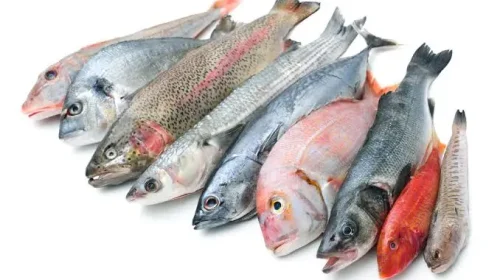Custom to begin online auction of seizures … Only tax payers with FIRS TIN to participate
The Comptroller General of Customs, Col. Hameed Ibrahim Ali (Rtd) has disclosed that only tax payers with Federal Inland Revenue Service (FIRS) issued Tax Identification Number (TIN) will be eligible to participate in a new auction sales of seized items by Nigeria Customs Service.
This is part of the guidelines contained in a new e-auction portal to be deployed for disposing of seizures that have undergone the process of court condemnation.
The portal, www.trade.gov.ng requires applicants to input recent passport photo with a payment of non refundable administartive fee of N1000
The new e- auction portal for the sales of seized items at Customs Commands across the Country is expected to reduce congestion in the various government warehouses and increase revenue from the sales.
Ali however introduced the process as a way of enhancing transparency, reduce human contacts and ensure that only the highest bidders for any auctioned item takes it.
Aside Tax Identification Number ( TIN ) by prospective bidders, other terms and conditions includes exclusion of customs officers and their families from participating in the bidding process either directly of by proxy.
The guidelines also indicate that auctioned items cannot be replaced or funds paid refunded to bidders
Successful bidders are expected to make payments within five working days as auctioned items whose winners fail to pay within the period forfeit the auctioned item to the second highest bidder.
Successful bidders will be given a period 14 days from the date of payment to remove the item bidded for or forfeit it at expiration of the period.
Any auctioned item not removed from the warehouse within 14 days from the date of payment shall revert to its pre-bidding status which makes such item open for sale again.
Winners in the auction process are also expected to pay 25% of the auction amount to the Terminal Operator with another 25% of the auction amount to the shipping line Operator
Owners of seized items are excluded from bidding for them but may however participate in the bidding of other items while owners of overtime items with evidence of payment of duty and other charges has priority over a successful bidder of the item provided the item has not been exited out of the Customs control.
Interested persons will be expected to access what is put for sale through NCS trade portal i.e www.trade.gov.ng interests to bid and the system will trigger victory to the highest bidder.
Aside being transparent, the new method will also increase the amount of revenue government makes from auctions as bidding will be competitive and devoid of bias or favouritism.
Hitherto, the service had done auctions through issuance of documents to beneficiaries with which such beneficiaries approached the warehouses before making payments to designated banks.
This method was viewed as not being transparent as beneficiaries of the auctions were believed to have been selected through a non competitive process.
This new auction policy is coming 19 months after customs auctions were suspended following the voluntary retirement of the former Controller General of Customs, Dikko Inde Abdullahi.
There has been media reports that seized goods amounting to billions of naira that have been condemned through court processes are lying in the warehouses .
Confirming the development, Joseph Attah, spokesman for Nigeria Customs, said the Comptroller General took time to entrench the new method that requires deploying of ICT, avoiding human contact and influences.
He said apart from increase of revenue for Government, the online platform will ensure integrity of the process.
Attah added that the new system is undergoing a test run for applicant acceptability before it is open to the public for access and transactions.
Billions of naira is expected to be generated from the sales which includes cars, trucks, tankers,leather and other items seized from smugglers who ostensibly wanted to evade duty payment.
President Muhammadu Buhari had approved the distribution of perishable items like rice, soap, clothes, vegetable oil etc to internally displaced persons (IDP) camps across the country.







Leave a Reply